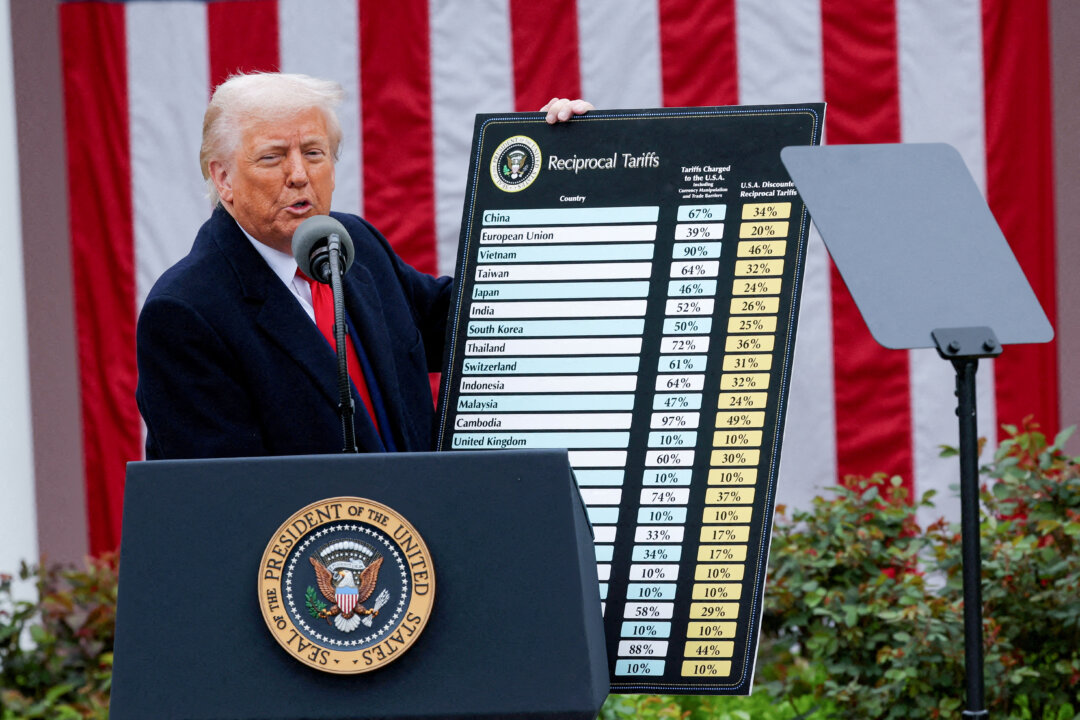The White House has made it clear that President Trump is prepared to veto a Senate resolution aimed at ending his administration’s global tariffs. The Office of Management and Budget (OMB) has voiced strong opposition to this joint resolution, which is being pushed by several Democrats, including Sen. Ron Wyden and Sen. Chuck Schumer, along with Sen. Rand Paul. The resolution seeks to suspend the national emergency order Trump issued in early April, which led to a wave of tariffs.
The OMB memo warns that the resolution could jeopardize national and economic security. The Trump administration argues that these tariffs are crucial to tackling the persistent U.S. trade deficit, which they say poses significant threats. If Congress attempts to override a presidential veto, they would need a two-thirds majority in both the House and Senate, a challenging feat.
The emergency declaration and tariffs are designed to address what the administration calls a “lack of reciprocity” in trade relationships. The U.S. faces a $1.2 trillion annual trade deficit, which the administration argues gives foreign goods undue advantages. The White House believes these measures are essential for leveling the playing field for American products.
The administration also cites the Chinese communist regime’s unfair trade practices as a reason for the tariffs. Sen. Rand Paul, however, has criticized these tariffs as deceptive and argues that they undermine existing laws. He contends that the tariffs are simply a bad policy masked as an emergency measure.
Give Me Five Podcast
On April 2, Trump announced a baseline tariff of 10 percent on nearly all countries, with additional tariffs for some. While these tariffs were paused for 90 days for most countries, China was not included in this pause. The aim was to negotiate better trade deals for the U.S. during this period.
In an article for Fox News, Paul argued that these tariffs would ultimately hurt American consumers by raising prices. He warned that tariffs on imported vehicles, for example, could increase costs by up to $15,000. According to Paul, tariffs are essentially taxes on consumers purchasing foreign goods.
Sen. Wyden has also criticized the tariffs, calling them a form of “trade chaos.” He argues that these new tariffs are essentially a tax on everyday items, affecting families across the nation. The criticism stems partly from the abruptness of the tariff announcements, often made via Trump’s social media platforms.
Earlier, Trump had imposed 25 percent tariffs on Mexico and Canada, citing issues like border security and drug trafficking. These tariffs remain in effect during the current 90-day pause. Recently, the Senate voted to lift tariffs on Canada, with support from both sides of the aisle, including Sen. Mitch McConnell and Sen. Susan Collins.
Despite these votes, the White House has indicated it would veto another bill that seeks to give Congress more authority in tariff decisions. The OMB believes this would weaken the executive branch’s ability to address foreign threats. The issue remains contentious as different branches of government tussle over trade policy authority.
The conflict over tariffs highlights broader tensions between the executive and legislative branches. While some Republicans like Sen. Paul oppose the tariffs, others support them as necessary for national security. This debate is emblematic of the ongoing struggle to balance economic interests with security concerns.
Fox News has also highlighted the economic risks of the tariffs, noting that they could disrupt international supply chains. Critics argue these policies might end up hurting American industries that rely on global trade. The administration, however, insists that short-term pain will lead to long-term gain.
As the debate carries on, the Trump administration remains firm in its stance. They argue that these tariffs are a tool to protect American industries and workers. The White House believes that maintaining these measures is essential for economic stability and security.
While Democrats and some Republicans push back, the administration holds that the tariffs are a necessary response to unfair trade practices. The White House sees the tariffs as part of a broader strategy to renegotiate trade deals on more favorable terms. The hope is that these actions will ultimately benefit American workers and businesses.
In the meantime, Americans are left to navigate the economic landscape shaped by these tariffs. Price increases on imports could affect everything from cars to everyday household items. As these discussions continue, the administration remains steadfast in its push for what it sees as fairer trade practices.
The Epoch Times has reached out to the White House for further comments on the matter. The ongoing discussions are likely to continue as both sides of the aisle debate the best path forward. As it stands, the administration is committed to its current trade policies, believing them crucial for the nation’s long-term prosperity.



